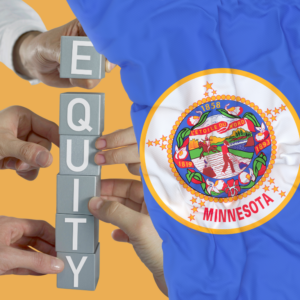Unveiling Inequities: Investigation Reveals Private Advantage in New York Cannabis Deal

An Anticipated Agreement Unveiled
Last June, Governor Kathy Hochul announced a groundbreaking deal aimed at fostering social equity in New York’s budding cannabis industry. The $200 million public-private fund was envisioned to support cannabis dispensaries operated by individuals most affected by the war on drugs. However, recent investigations by THE CITY have unearthed discrepancies that challenge the integrity of this agreement.
The Illusion of Equity
Despite lofty promises of rectifying past injustices, THE CITY’s probe reveals a stark reality. Instead of empowering marginalized communities, the deal appears to prioritize the interests of a private equity firm, Chicago Atlantic Group. Documents obtained by THE CITY shed light on the skewed nature of the agreement, which not only undermines social equity objectives but also guarantees substantial returns to private investors at the expense of taxpayers.
Questionable Terms and Misguided Investments
The state’s Office of Cannabis Management (OCM) raised valid concerns regarding inflated revenue and profit projections, casting doubt on the fund’s financial viability. Furthermore, the agreement with Chicago Atlantic exposes taxpayers to significant risks, with the state assuming all liabilities while the private entity reaps disproportionate benefits.
Dismantling the Myth of Social Equity
Despite reassurances from state officials, the deal with Chicago Atlantic fails to uphold the principles of social equity. Legal experts and industry insiders alike have criticized the terms, likening them to predatory lending practices that prioritize investor interests over public welfare.
The Harsh Realities of Implementation
While initially touted as a beacon of hope for marginalized communities, the reality of the social equity fund’s implementation paints a different picture. High construction costs, unrealistic revenue projections, and burdensome loan terms have left licensees struggling to stay afloat, further exacerbating inequalities in the cannabis industry.
A Call for Accountability
As the true implications of the deal come to light, there is a growing chorus of voices demanding accountability from state officials. The lack of transparency surrounding the agreement and its subsequent fallout underscores the urgent need for greater oversight and reform within New York’s cannabis regulatory framework.
Toward a More Equitable Future
Despite setbacks and disappointments, there remains hope for a more equitable future in New York’s cannabis industry. By learning from past mistakes and prioritizing the needs of marginalized communities, policymakers have the opportunity to steer the industry towards a path of genuine social and economic empowerment.
Conclusion: Upholding the Promise of Social Equity
The revelations uncovered by THE CITY’s investigation serve as a sobering reminder of the challenges inherent in achieving true social equity. Moving forward, it is imperative that policymakers, stakeholders, and advocates work collaboratively to dismantle systemic barriers and ensure that the promise of social equity in the cannabis industry is upheld for all New Yorkers.











